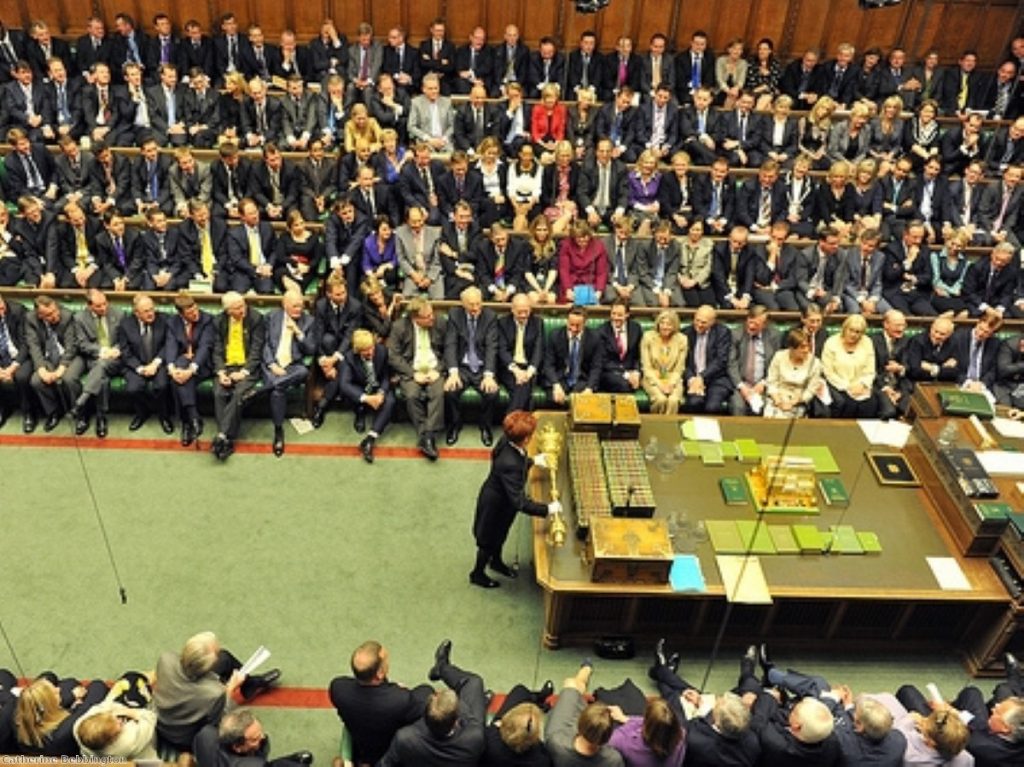Legitimacy crisis looms as public swallow Tory rhetoric
By Politics.co.uk staff
A crisis of legitimacy over the make-up of the next government appears to be looming as a new poll reveals half of the public don't understand how the constitution works.
A survey of 1,003 British adults by ComRes for Newsnight has found a majority think the next prime minister should be determined, in the event of a hung parliament, by whichever controls the largest party in the Commons.
Only 34% agreed with the statement that the next PM should be the leader "who can form a partnership of the largest number of MPs including those from smaller parties", compared to 55% who believe it should be the leader of the party with the most MPs.


The latter view is at odds with the UK constitution, which determines that the prime minister is the man or woman who can command a majority in the Commons – regardless of whether or not theirs is the largest party in parliament.
Given the widening expectation that the Tories could emerge as the largest party, but could be denied power by Labour voting alongside the SNP, it's no surprise views about the constitution vary significantly on party lines.
Fifty-five per cent of Labour voters backed the PM being the leader of the largest party, compared to 69% of Conservative supporters.
It follows a warning from home secretary Theresa May yesterday in a Mail on Sunday interview that a Labour minority government could represent the biggest constitutional crisis since Edward VIII's abdication in 1936.
Theresa May forgets any legitimacy for a #Labour and #SNP UK-pact this #GE2015 is in the ballot box, not her head … pic.twitter.com/J5Oefa8i6u
— Kevin Maxwell (@kevin_maxwell) April 26, 2015
"Miliband would be in government on the coat-tails of Sturgeon and Alex Salmond," May said.
"They would be calling the tune – people who don't want the UK to exist and want to destroy our country.
"There would be a very real feeling was this was something people did not want to see, had not voted for and would find very difficult to accept. It would raise difficult questions about legitimacy. A lot of English people would question that."
The Liberal Democrats' approach to coalition talks may be partly responsible for the public's confusion. Nick Clegg has consistently made clear his preference is to work with the largest party in the Commons, despite experts making clear that is a decision based on political rather than constitutional pragmatism.
At the weekend he told the BBC his party would "ensure that any government is legitimate".
Explaining his logic, he added: "That means that, in a democracy, the party with the greatest mandate from the British people – even though they haven't got a majority – seems to me, to us, to be the party that has the right to try to assemble a government first. They may not succeed, but they should surely be given a chance to succeed."

The final sentence is significant: it suggests that the Lib Dems would be sticklers for supporting the largest party, even if it was brought down by a no-confidence vote.
If the alternative is a far stronger government composed of an alliance other than the single largest party, Clegg's approach could result in unnecessary instability.
Professor Vernon Bogdanor, professor of government at King's College London, told the Guardian Clegg's position on the issue was "absurd".
"It is difficult to know how the British public would perceive [a government formed by the second-largest party]. In parliamentary terms the question is: who can command support of parliament?"
When questioned about what kind of government would be the most legitimate, ComRes' respondents offered a more balanced approach.
Forty-seven per cent said the most legitimate government in the event of neither Labour nor the Conservatives winning an overall majority would be "the party who can form a partnership of the largest number of MPs with the support of smaller parties".
But 41% nevertheless backed "the party with the largest number of MPs forming a partnership with whichever party they want".

SNP leader Nicola Sturgeon sought to combat the Tories' argument, advanced most forcefully so far in this campaign by former PM John Major, about the illegitimacy of an Ed Miliband administration if he falls short of David Cameron's total.
"Scotland has had Tory governments much of my lifetime that have had very little representation in Scotland and we haven't said that's illegitimate," she told the Times.
"These are the swings and roundabouts of the UK-wide system."
Tonight's poll adds a further dimension to the debate by linking legitimacy to a government's geographical breadth of support.
Half of Britons think a government that is only able to govern based on the support of parties representing Scotland, Wales and Northern Ireland is legitimate, while a third think it is not.












